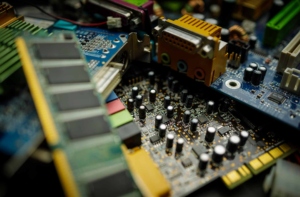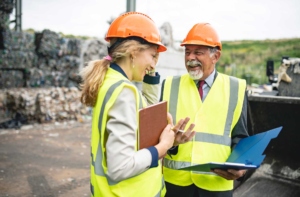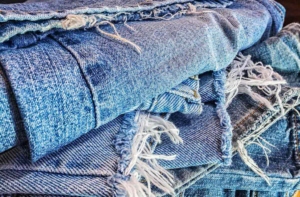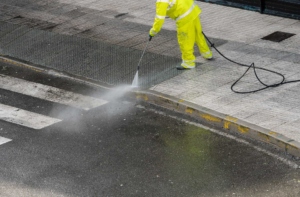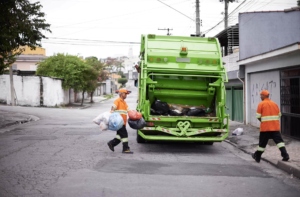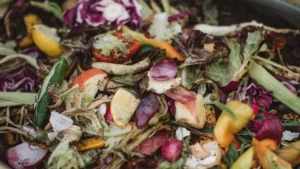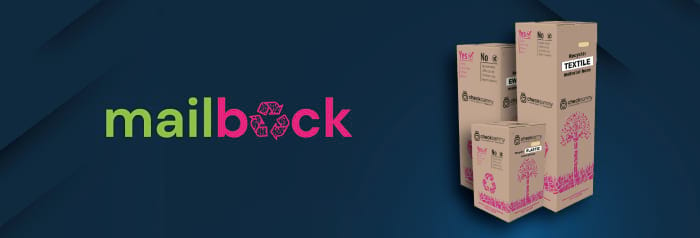Sustainable Solutions: COVID-19 Testing Kits
Sustainable Solutions: Recycling COVID-19 Testing Kits for a Sustainable Future
The COVID-19 pandemic has led to an unprecedented global demand for testing, which has resulted in the production and distribution of millions of testing kits worldwide. Unfortunately, this increased demand has also generated a significant amount of waste, including plastic swabs, containers, and packaging materials. With sustainability becoming an increasingly critical issue, it is essential to consider how we can recycle and repurpose these testing kits to create a more sustainable future.
Talk With A Sustainability Specialist
ESG scores offer a standardized evaluation of a company’s sustainability and ethical business conduct. Due to their impact on investor decisions, risk management, reputation, access to finance, and compliance with changing rules, they have grown in significance in the business world. Companies with high ESG ratings are more likely to succeed in a changing business environment and live up to stakeholder expectations.
Types of COVID-19 Testing Kits
There are two primary types of COVID-19 testing kits: diagnostic tests and antibody tests. Diagnostic tests, such as the polymerase chain reaction (PCR) test, identify whether an individual has an active COVID-19 infection. In contrast, antibody tests are used to identify whether an individual has previously been infected with the virus.
Both types of tests use disposable components, including swabs, vials, and other plastic materials, which can quickly add up to a considerable amount of waste.
COVID-19 Waste Unpacked
A recent report by the World Health Organization (WHO) suggests that the production and disposal of medical products are pose significant threats to human and environmental health. The report highlights the need for changes in the way medical products are manufactured and discarded to mitigate these risks.
The report indicates that over 140 million test kits have been distributed worldwide, resulting in an estimated 2,600 tonnes of general waste, predominantly made up of plastic, and 731,000 liters of chemical waste. These quantities of waste can potentially have adverse effects on the environment and human health. Therefore, the report calls for urgent action to address these issues and develop more sustainable practices in the production and disposal of medical products.
In addition, the global administration of over 8 billion vaccine doses has resulted in an additional 144,000 tonnes of waste, including glass vials, needles, and safety boxes. This large amount of waste generated by vaccination programs further poses significant environmental concerns.
Furthermore, a think piece by George Loumakis, a lecturer in Energy at the Glasgow Caledonian University, estimates that the production of each home test kit emits 22.5 grams of CO₂e– a damming statistic considering the popularity of home testing kits in the US and UK in particular.
Recycling COVID-19 Testing Kits
The COVID-19 pandemic has presented a unique challenge to the world, and recycling testing or vaccine kits can contribute to creating a more sustainable future. There are several ways in which we can recycle these testing kits.
Swab Collection and Repurposing
One of the most significant sources of waste in COVID-19 testing is the swab used to collect samples. While many swabs are made from plastic and cannot be recycled, some companies are now producing more environmentally friendly swabs made from materials such as bamboo or paper. These swabs are biodegradable, making them a much more sustainable option.
Another option is to repurpose plastic swabs to make other products. For example, plastic swabs can be melted down and used to create new plastic items, such as chairs, tables, or playground equipment.
Recycling Vials and Containers
The vials and containers used to hold the test samples can also be recycled. After the samples have been analyzed, these containers can be cleaned and sanitized before being sent to a recycling facility. These containers are typically made of plastic, and many local recycling programs accept them.
Repurposing Packaging Materials
The packaging materials used to ship and store the testing kits can also be repurposed. For example, the boxes used to ship the kits can be broken down and used for packaging other items or recycled.
Creating a Closed-Loop System
A closed-loop system is a process in which waste is recycled and reused to create new products. In the case of COVID-19 testing kits, a closed-loop system could involve collecting used swabs, containers, and packaging materials and repurposing them to create new testing kits. This approach would significantly reduce the amount of waste generated by COVID-19 testing while also reducing the need for new resources.
Challenges and Solutions
While recycling COVID-19 testing kits is a sustainable solution, there are still some challenges to overcome.
One challenge is that the components of the testing kits are often made from different materials, making them difficult to recycle. For example, the swab may be made from plastic, while the container may be made from glass. To address this issue, manufacturers can design testing kits with recyclability in mind, using more easily recycled materials.
Another challenge is that there is currently no standard recycling process for COVID-19 testing kits. Therefore, it is essential to develop a standard process to ensure that all materials are properly recycled.
Benefits of Recycling COVID-19 Testing Kits
Recycling COVID-19 testing kits offers several benefits for the environment and public health. Here are some of the most significant benefits:
Reducing Waste
Recycling COVID-19 testing kits helps to reduce the amount of waste generated by the pandemic. By repurposing and recycling the components of the testing kits, we can minimize the environmental impact of COVID-19 testing.
Conserving Resources
Recycling testing kits also help to conserve valuable resources. By repurposing and recycling the plastic, glass, and other materials used in the kits, we can reduce the need for new resources and minimize the impact of resource extraction on the environment.
Creating a Sustainable Future
By developing a standardized recycling process for COVID-19 testing kits, we can create a closed-loop system that minimizes waste and maximizes the use of resources. This approach helps to create a more sustainable future and reduce our reliance on non-renewable resources.
Protecting Public Health
Recycling COVID-19 testing kits can also help to protect public health. Improperly discarded testing kits can pose a risk to waste handlers and the public, increasing the risk of infection. By properly disposing of and recycling testing kits, we can help to minimize this risk.
Supporting the Circular Economy
Finally, recycling COVID-19 testing kits supports the circular economy, which aims to minimize waste and create a more sustainable future. By repurposing and recycling materials, we can create a more efficient and sustainable system that benefits everyone.
In conclusion, the COVID-19 pandemic has created a significant amount of waste, particularly from the use of testing kits. However, by recycling and repurposing these kits, we can create a more sustainable future while also protecting public health. Recycling offers several benefits, including reducing waste, conserving resources, creating a sustainable future, protecting public health, and supporting the circular economy.
To make recycling COVID-19 testing kits a reality, we need collaboration between governments, manufacturers, and recycling facilities. By developing a standardized recycling process for testing kits, we can ensure that all components are properly collected, separated, and recycled. Manufacturers can also help by designing testing kits with recyclability in mind, using more easily recycled materials.
We all have a role to play in creating a more sustainable future, and recycling COVID-19 testing kits is just one way that we can contribute. By reducing waste, conserving resources, and creating a circular economy, we can create a healthier and more sustainable planet for future generations.
See Our Services
Create a custom solution to meet your waste and sustainability goals. Contact us today!
Continue reading
Dive deeper into the CheckSammy Blog by reading one of our posts below
Feeling the Pain of Higher Resident Turnover? Apartment Junk Removal Can Help
If you’re a property manager, you’ve probably had a significant increase in tenant turnover over the last couple of years. So it’s no wonder apartment junk removal may be top of mind for you right now. There are several reasons for this shift. For one, the housing market is on fire right now. In 2020 […]
Read More About Feeling the Pain of Higher Resident Turnover? Apartment Junk Removal Can HelpSetting Up a Community E-waste Recycling Program
E-waste is the fastest-growing municipal waste stream according to the EPA, yet e-waste recycling isn’t keeping pace. In fact, only 12.5% of all e-waste is recycled, reports the EPA. Starting a community e-waste recycling program is a terrific way to ensure hazardous e-waste, like lithium-ion batteries, doesn’t end up in your community’s landfill. Creating an […]
Read More About Setting Up a Community E-waste Recycling ProgramWaste Management’s Role in the Circular Economy
Establishing a waste management program for your business or community is one of the best ways you can contribute to the circular economy. Here’s everything you need to know about waste management’s role in the circular economy (and how to get involved). What Is the Circular Economy? Our current economic model is all about taking […]
Read More About Waste Management’s Role in the Circular Economy5 Reasons to Consider a Textile Recycling Program for Your Organization
Americans sent more than 17 million tons of textiles to landfills in 2018, a volume that is only increasing every year, reports the Environmental Protection Agency. When you think about the fact that it can take over 200 years for textiles to decompose, it’s easy to grasp how large textile waste’s contribution is to the […]
Read More About 5 Reasons to Consider a Textile Recycling Program for Your Organization8 Benefits of Environmentally Friendly Power Washing Services
If you’re into maintaining the curb appeal of your business or home, then you’ve probably heard of pressure washing. Pressure cleaning involves using high-pressure water spray to remove grime, mold, dust, paint, mud, and other junk from objects or surfaces. Many people worry that pressure washing isn’t good for the environment, but this couldn’t be […]
Read More About 8 Benefits of Environmentally Friendly Power Washing ServicesWhy Our Customers Love Our Full-Service Junk Removal
If you’re looking for full-service junk removal services, you’ve come to the right place. CheckSammy is a one-stop shop for all your junk removal and sustainability needs. From our affordability, simplicity, and unrivaled turnaround times to our innovative sustainability solutions and patented technology and data, it’s clear why some of North America’s biggest companies choose […]
Read More About Why Our Customers Love Our Full-Service Junk RemovalTips for a Stress-Free Move From An Eco-Friendly Junk Removal Company
What does an eco-friendly junk removal company know about moving? Quite a lot, actually. Moving can be an especially chaotic time. You have to pack everything up, get rid of unwanted items, clean your property, load everything up, and move your things to your new location. That doesn’t even include the unpacking and resettling period. […]
Read More About Tips for a Stress-Free Move From An Eco-Friendly Junk Removal CompanyCollege Junk Removal Tips for Student Move-In Day
As the new school year gears up, colleges across the country are looking for ways to clean up their campuses before the new year begins, and many of them want to do so sustainably. College junk removal isn’t easy, though, especially around move-in week—and when trying to do so sustainably. As students move in and […]
Read More About College Junk Removal Tips for Student Move-In Day8 Items Hospitality Businesses May Not Know They Can Recycle
One hotel guest produces 2.5 pounds of trash every single day. Just a single hotel room produces around one cubic yard of waste each month, which totals 200 gallons of waste per room every month. Most of this waste goes straight to the landfill, even though research shows that up to 60% of it is […]
Read More About 8 Items Hospitality Businesses May Not Know They Can Recycle
